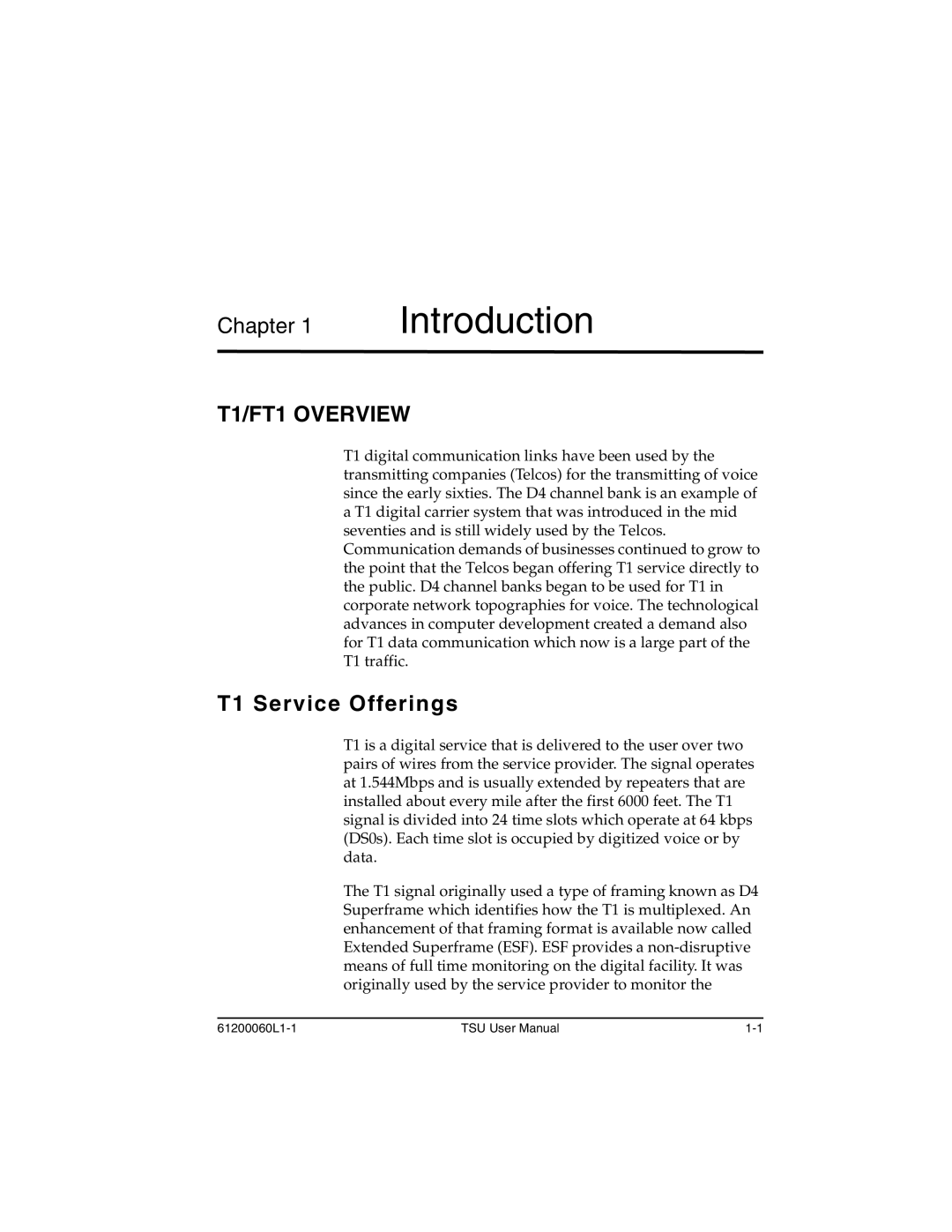
Chapter 1 Introduction
T1/FT1 OVERVIEW
T1 digital communication links have been used by the transmitting companies (Telcos) for the transmitting of voice since the early sixties. The D4 channel bank is an example of a T1 digital carrier system that was introduced in the mid seventies and is still widely used by the Telcos. Communication demands of businesses continued to grow to the point that the Telcos began offering T1 service directly to the public. D4 channel banks began to be used for T1 in corporate network topographies for voice. The technological advances in computer development created a demand also for T1 data communication which now is a large part of the T1 traffic.
T1 Service Offerings
T1 is a digital service that is delivered to the user over two pairs of wires from the service provider. The signal operates at 1.544Mbps and is usually extended by repeaters that are installed about every mile after the first 6000 feet. The T1 signal is divided into 24 time slots which operate at 64 kbps (DS0s). Each time slot is occupied by digitized voice or by data.
The T1 signal originally used a type of framing known as D4 Superframe which identifies how the T1 is multiplexed. An enhancement of that framing format is available now called Extended Superframe (ESF). ESF provides a
TSU User Manual |
